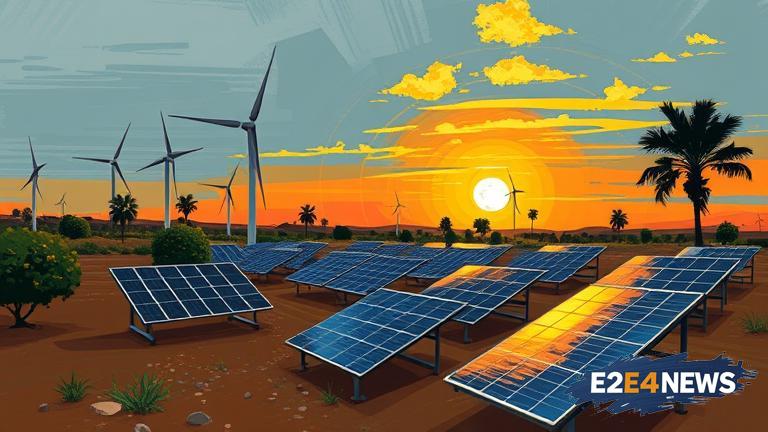The African continent is witnessing a significant shift towards renewable energy, driven by the need to address the pressing issues of energy access, climate change, and sustainable development. With many countries still struggling to provide electricity to their populations, renewable energy has emerged as a viable solution. Solar and wind power are becoming increasingly popular, with countries like South Africa, Egypt, and Morocco leading the way. The cost of renewable energy technologies has decreased dramatically over the years, making them more competitive with fossil fuels. This has led to a surge in investments in the sector, with many international companies and organizations committing to support Africa’s renewable energy ambitions. The African Union’s Agenda 2063 has set a target of ensuring access to clean and affordable energy for all Africans by 2030. To achieve this, countries are implementing policies and regulations to support the development of renewable energy. For instance, South Africa has introduced a renewable energy independent power producer procurement program, which has attracted significant investment. Egypt, on the other hand, has set a target of generating 20% of its electricity from renewable sources by 2022. Morocco has also made significant strides in renewable energy, with the launch of the Noor-Ouarzazate solar power complex, one of the largest in the world. The benefits of renewable energy are numerous, including reduced greenhouse gas emissions, improved air quality, and enhanced energy security. Moreover, renewable energy can create jobs and stimulate local economies, contributing to sustainable development. However, there are still challenges to be addressed, including the lack of infrastructure, limited access to financing, and the need for capacity building. To overcome these challenges, international cooperation and knowledge sharing are essential. The European Union, for example, has launched the Africa-EU Renewable Energy Cooperation Program, which aims to support the development of renewable energy in Africa. The program provides technical assistance, capacity building, and financing to support the implementation of renewable energy projects. Similarly, the African Development Bank has launched the New Deal on Energy for Africa, which aims to achieve universal access to energy by 2025. The program provides financing, technical assistance, and policy support to help countries develop their energy sectors. In addition, the private sector is playing a crucial role in supporting Africa’s renewable energy ambitions. Companies like Siemens, GE, and Vestas are investing heavily in the sector, providing technology, financing, and expertise. Furthermore, innovative financing models, such as green bonds and crowdfunding, are emerging, providing new opportunities for renewable energy projects to access capital. As the demand for energy continues to grow, Africa’s renewable energy revolution is gaining momentum. With the right policies, investments, and international cooperation, the continent can achieve its ambitious targets and become a leader in the global transition to a low-carbon economy. The future of Africa’s energy sector looks bright, with renewable energy set to play a major role in driving sustainable development and reducing poverty. As the continent continues to grow and develop, it is essential that energy access is prioritized, and renewable energy is at the forefront of this effort. By doing so, Africa can ensure a sustainable and prosperous future for its people.
